Censorship is really about the state being afraid of the ideas of liberty; they’re afraid that it might catch on and that they will lose all control. —Johnny Adams


Censorship is really about the state being afraid of the ideas of liberty; they’re afraid that it might catch on and that they will lose all control. —Johnny Adams

People often fail to perceive the fundamental difference between the liberal and the anarchistic idea. Anarchism rejects all coercive social organizations, and repudiates coercion as a social technique. It wishes in fact to abolish the State and the legal order, because it believes that society could do better without them. It does not fear anarchical disorder because it believes that without compulsion men would unite for social co-operation and would behave in the manner that social life demands.
Anarchism as such is neither liberal nor socialistic: it moves on a different plane from either. Whoever denies the basic idea of Anarchism, whoever denies that it is or ever will be possible to unite men without coercion under a binding legal order for peaceful co-operation, will, whether liberal or socialist, repudiate anarchistic ideals.
— Ludwig von Mises (Socialism: An Economic and Sociological Analysis)

Nobody in the drug industry is going to say anything because if they do the FDA could punish them by dragging their feet on their approvals, which could destroy a company, and it has destroyed many. So no one is going to speak out. —Dr. Mary J. Ruwart
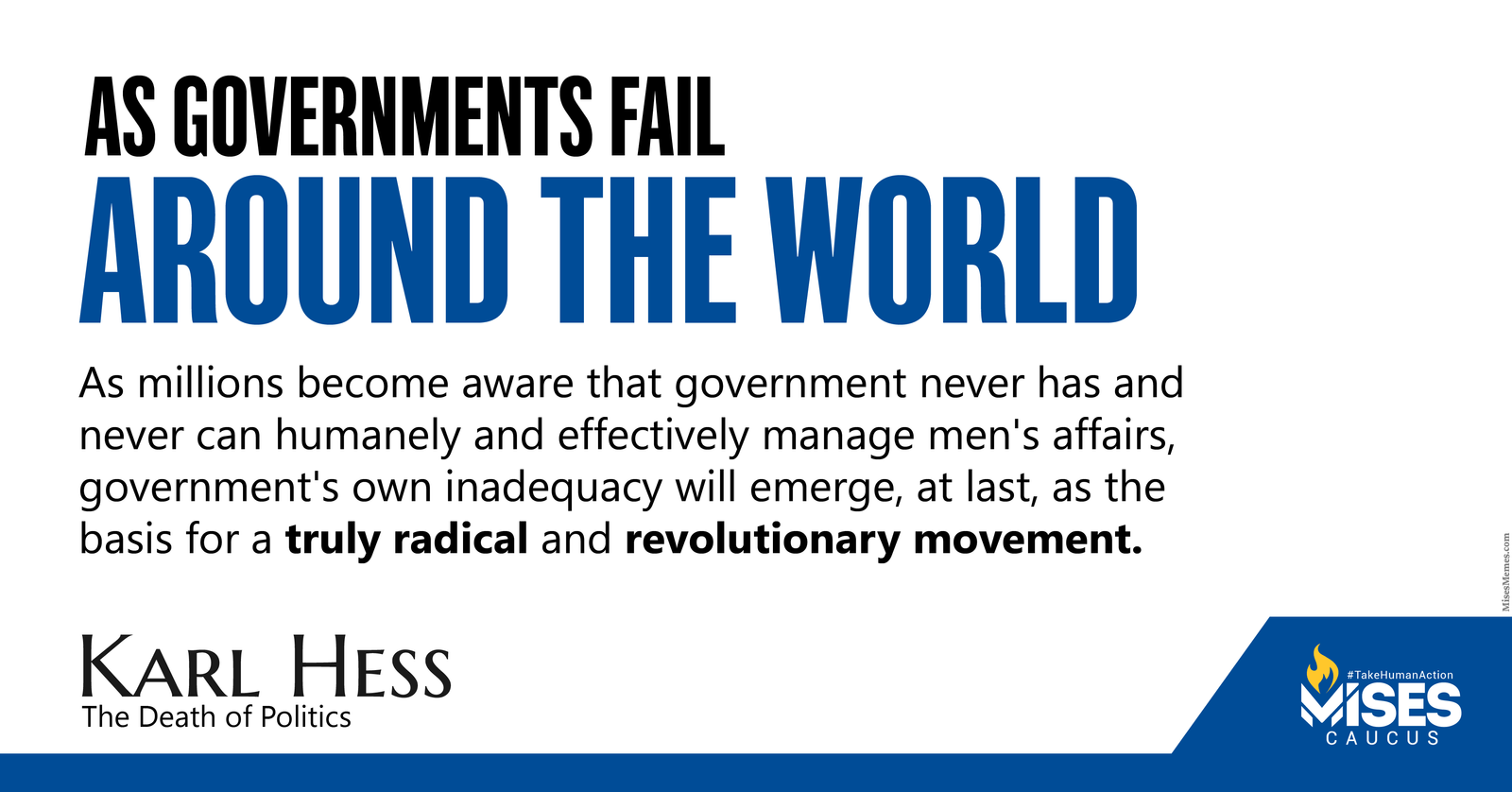
The radical-revolutionary position is a lonely one. It is feared and hated, by both Right and Left — although both Right and Left must borrow from it to survive. The radical-revolutionary position is libertarianism, and its socioeconomic form is laissez-faire capitalism. —Karl Hess
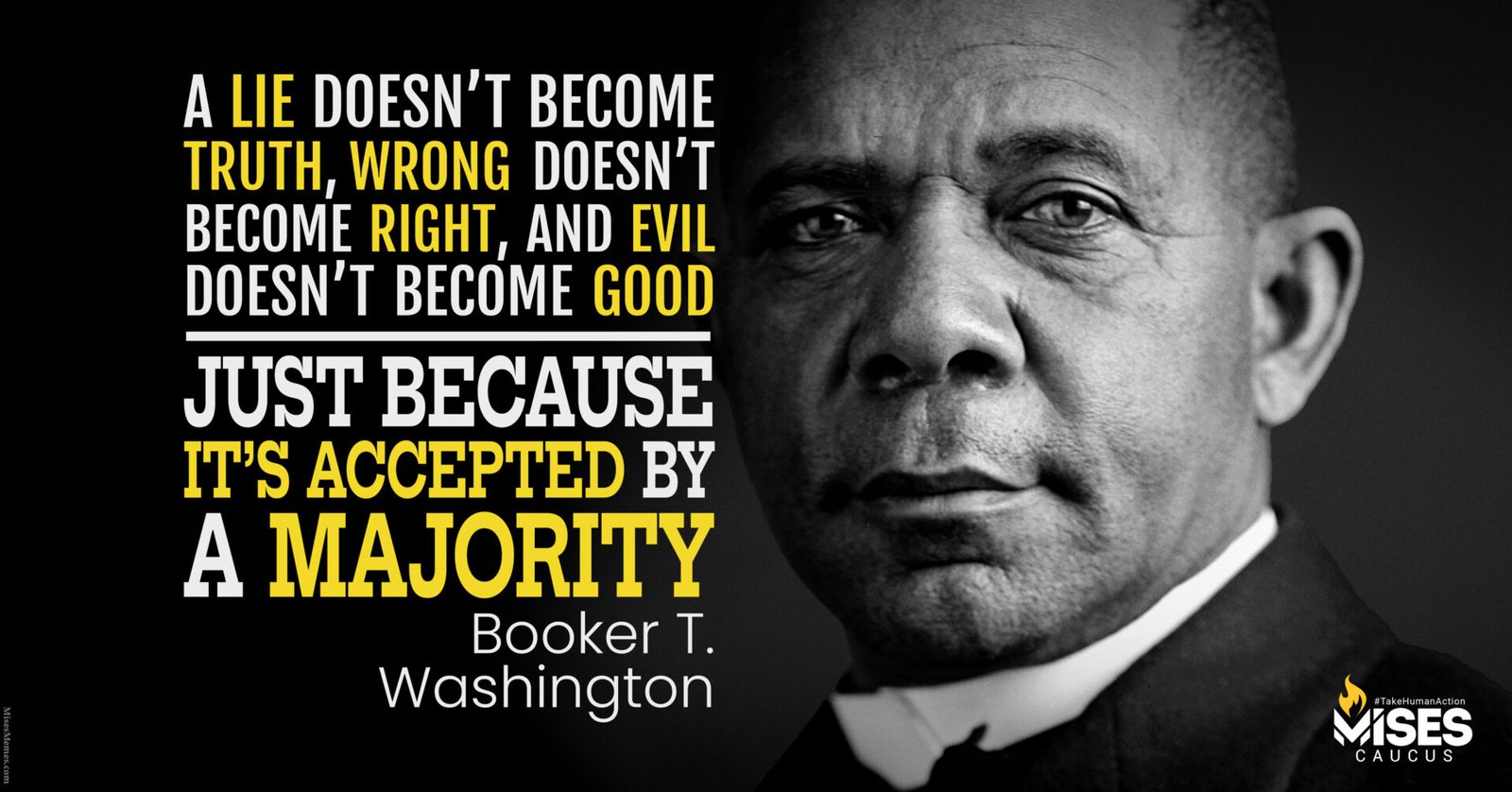
A lie doesn’t become truth, wrong doesn’t become right, and evil doesn’t become good, just because it’s accepted by a majority. —Booker T. Washington

I’m a libertarian. I think a lot of people are libertarians and are afraid to admit it. —Kurt Russell
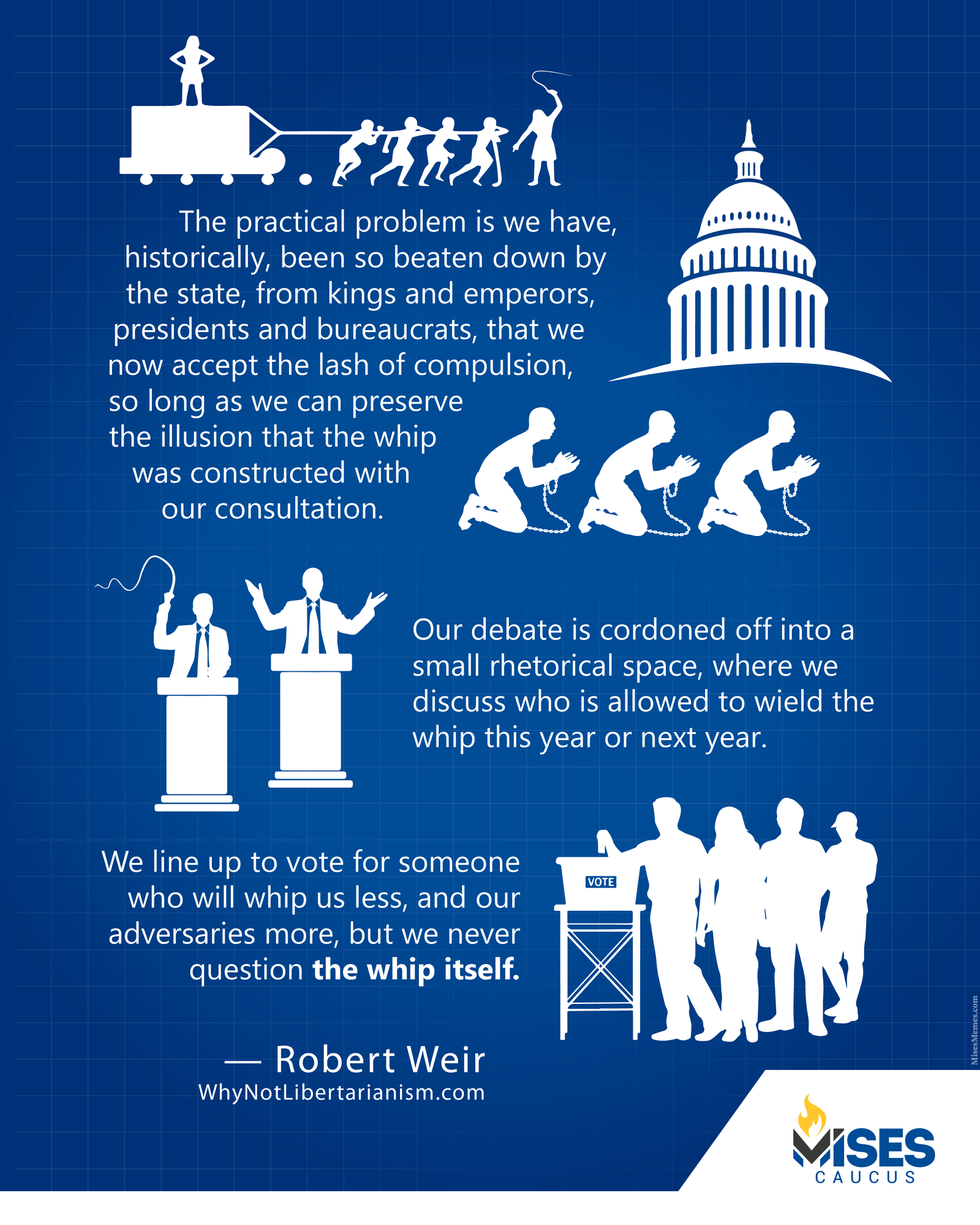
The practical problem is we have, historically, been so beaten down by the state, from kings and emperors, presidents and bureaucrats, that we now accept the lash of compulsion, so long as we can preserve the illusion that the whip was constructed with our consultation. Our debate is cordoned off into a small rhetorical space, where we discuss who is allowed to wield the whip this year or next year. We line up to vote for someone who will whip us less, and our adversaries more, but we never question the whip itself. —Robert Weir (WhyNotLibertarianism.com)
The practical problem is we have, historically, been so beaten down by the state, from kings and emperors, presidents and bureaucrats, that we now accept the lash of compulsion, so long as we can preserve the illusion that the whip was constructed with our consultation. Our debate is cordoned off into a small rhetorical space, where we discuss who is allowed to wield the whip this year or next year. We line up to vote for someone who will whip us less, and our adversaries more, but we never question the whip itself. —Robert Weir (WhyNotLibertarianism.com)
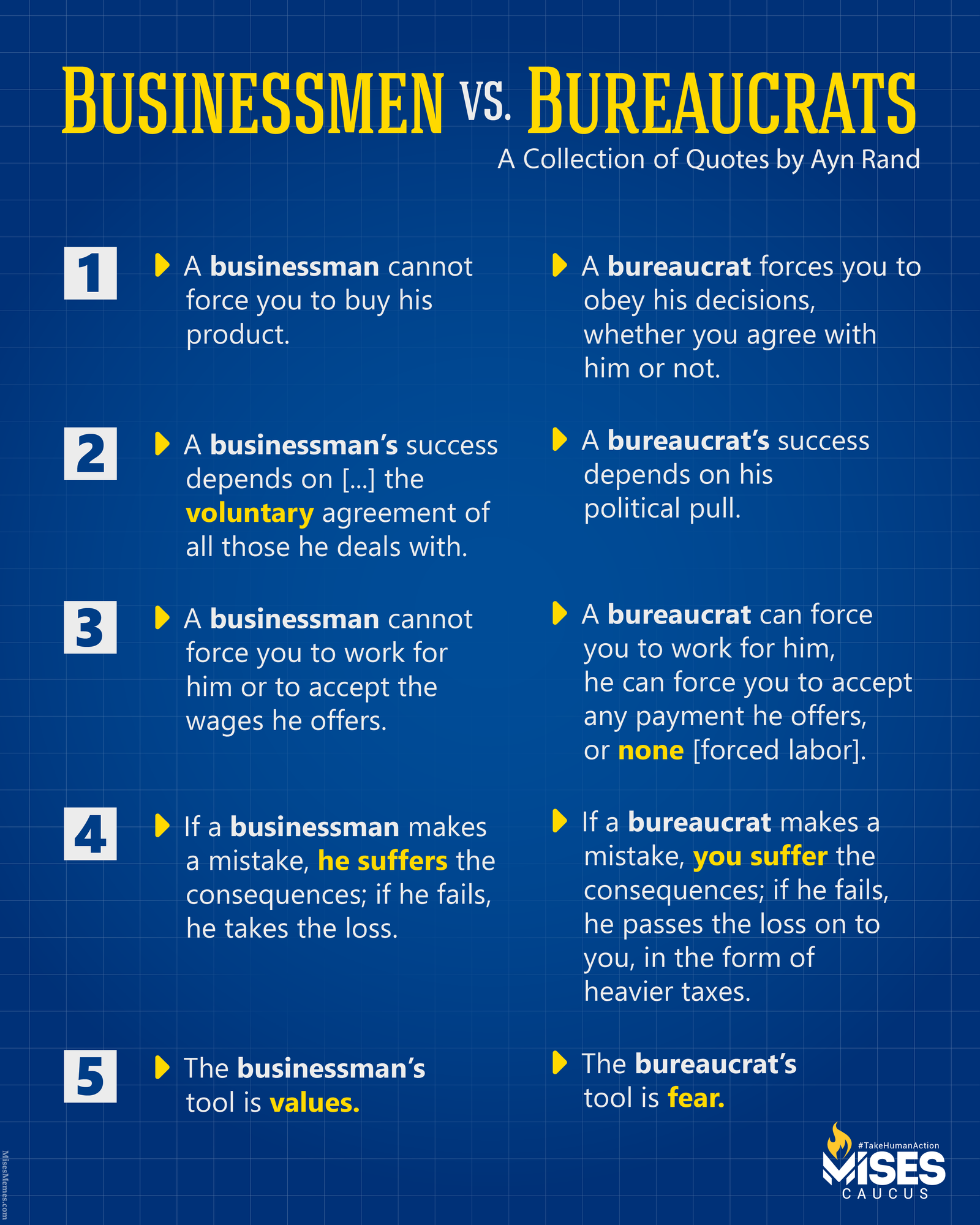
A businessman’s success depends on his intelligence, his knowledge, his productive ability, his economic judgment—and on the voluntary agreement of all those he deals with: his customers, his suppliers, his employees, his creditors or investors. A bureaucrat’s success depends on his political pull. A businessman cannot force you to buy his product; if he makes a mistake, he suffers the consequences; if he fails, he takes the loss. A bureaucrat forces you to obey his decisions, whether you agree with him or not—and the more advanced the stage of a country’s statism, the wider and more discretionary the powers wielded by a bureaucrat. If he makes a mistake, you suffer the consequences; if he fails, he passes the loss on to you, in the form of heavier taxes.
A businessman cannot force you to work for him or to accept the wages he offers; you are free to seek employment elsewhere and to accept a better offer, if you can find it. (Remember, in this context, that jobs do not exist “in nature,” that they do not grow on trees, that someone has to create the job you need, and that that someone, the businessman, will go out of business if he pays you more than the market permits him to pay you.) A bureaucrat can force you to work for him, when he achieves the totalitarian power he seeks; he can force you to accept any payment he offers—or none, as witness the forced labor camps in the countries of full statism.
The businessman’s tool is values; the bureaucrat’s tool is fear.
—Ayn Rand
A businessman’s success depends on his intelligence, his knowledge, his productive ability, his economic judgment—and on the voluntary agreement of all those he deals with: his customers, his suppliers, his employees, his creditors or investors. A bureaucrat’s success depends on his political pull. A businessman cannot force you to buy his product; if he makes a mistake, he suffers the consequences; if he fails, he takes the loss. A bureaucrat forces you to obey his decisions, whether you agree with him or not—and the more advanced the stage of a country’s statism, the wider and more discretionary the powers wielded by a bureaucrat. If he makes a mistake, you suffer the consequences; if he fails, he passes the loss on to you, in the form of heavier taxes.
A businessman cannot force you to work for him or to accept the wages he offers; you are free to seek employment elsewhere and to accept a better offer, if you can find it. (Remember, in this context, that jobs do not exist “in nature,” that they do not grow on trees, that someone has to create the job you need, and that that someone, the businessman, will go out of business if he pays you more than the market permits him to pay you.) A bureaucrat can force you to work for him, when he achieves the totalitarian power he seeks; he can force you to accept any payment he offers—or none, as witness the forced labor camps in the countries of full statism.
The businessman’s tool is values; the bureaucrat’s tool is fear.
—Ayn Rand

The funds that a government spends for whatever purposes are levied by taxation. And taxes are paid because the taxpayers are afraid of offering resistance to the tax gatherers. They know that any disobedience or resistance is hopeless. As long as this is the state of affairs, the government is able to collect the money that it wants to spend. Government is in the last resort the employment of armed men, of policemen, gendarmes, soldiers, prison guards, and hangmen. The essential feature of government is the enforcement of its decrees by beating, killing, and imprisoning. Those who are asking for more government interference are asking ultimately for more compulsion and less freedom. —Ludwig von Mises
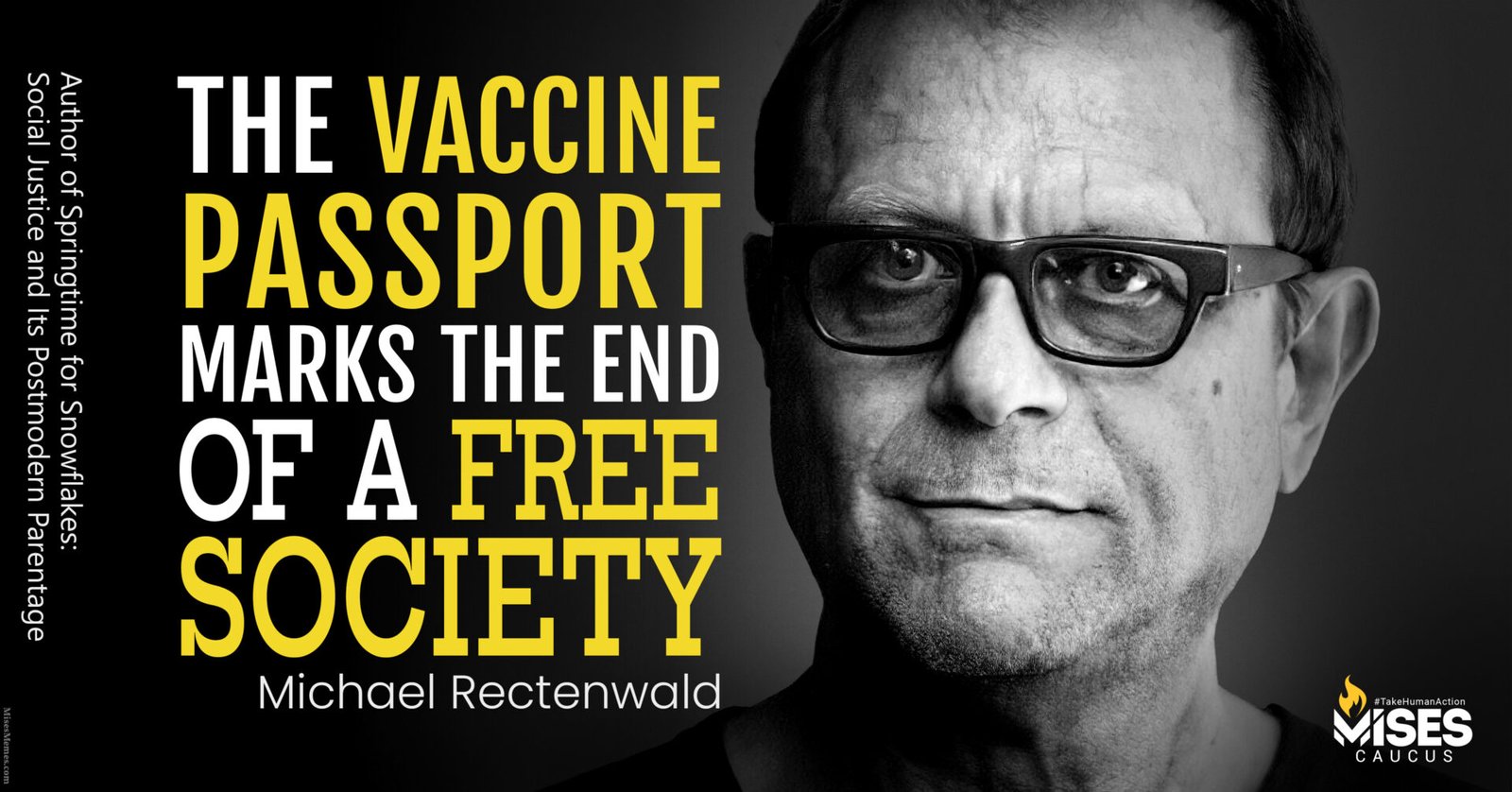
The vaccine passport marks the end of a free society. —Michael Rectenwald